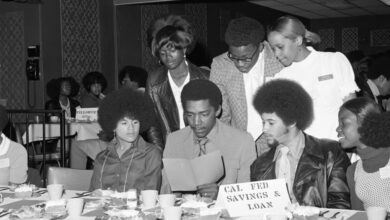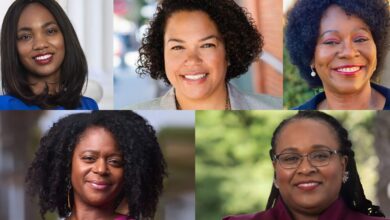California’s Black Women Leaders Talk Politics, Health, Economics and More

By Charlene Muhammad | California Black Media
Hundreds of African American women, professionals from different backgrounds and all corners of the Golden State, came together January 31 to discuss a range of issues important to Black women in California.
California Black Women’s Collective, California Black Media and Black Women Organized for Political Action (BWOPA) organized the event to release and discuss the findings of a report titled “The State of Black Women in California 2022 and Beyond: Essays from Black Women Thought Leaders.”
“Our speakers are …. experts on the issues that are important to Black Women and the Black community,” Kellie Todd Griffin, convener of the California Black Women’s Collective told the virtual audience. More than 700 people registered for the event.
There are nearly 1.1 million Black women in California. However, according to the report, more than 75% of Black households in the state are headed by single Black mothers and 80% of Black households have Black women breadwinners.
The report’s authors say the data in their study is significant for shining a light on the needs of Black women, which is critical to uplifting the Black community. The goal of the State of Black Women in California report is to focus on strategic and collaborative ways on the needs and concerns of Black women and girls in California, they explain.
The forum had four panel discussions, each one centered on the major themes of the report, which were: Political Participation; Work and Family; Health and Wellness; Employment and Earning; Poverty and Opportunity; Organizational Spotlight; Education; Violence and Safety; and Black Women and Aging. Authors who contributed to the study each spent time diving into the details of their essays.
The discussion was co-moderated by Regina Wilson, executive director of California Black Media and Shakari Byerly of Evitarus.
Kristin McGuire, executive director of the Young Invincibles, wrote “The Power of Next.” Her essay highlighted the need to focus on young women leaders.
“To move forward we must be intentional about developing the power of the next generation, she wrote.
Her essay, McGuire said, was motivated by the need to look at who was best qualified to lead.
“Who better to lead than people directly impacted,” she said.“Black women are disproportionately impacted.”
Jonie Ricks-Oddie, director of the UCI Center for Statistical Consulting, addressed management between work and home life in her essay titled, “The Balancing Act and the Support Needed.”
“For Black women, this balancing act has gone way past the breaking point. With nearly 80% of Black mothers with children under six participating in the work force, the highest workforce participation of any racial/ethnic group, the challenges facing their ability to remain in the work force remain,” she wrote.
She told the audience, “There are a lot of things employers can do to improve our quality of life (allow telecommuting and hybrid work options).”
She recommends the following, “Employers can build workplace policies, benefits and programs that provide coaching, wellness, and support services to support caregiver well-being. Additionally, employers can review their current leave policies to ensure that they are meeting the current and future needs of their staff.”
Dr. Colette Harris Mathews, founder/principal DEIB Consultant at Harris Mathews Consulting wrote about the challenges Black women face becoming the most educated group in America. Her essay is entitled, “Education’s Part in the Disruption of Success for Black Women.”
“The journey to college is mythical for most Black girls in California. Our nation has a long history of racial trauma and discriminatory behavior toward Black students. The urgency of closing the pay and wealth gap makes Black girls’ path to college particularly alarming due to the role Black women often play in being the primary breadwinner in Black households,” she wrote.
Black girls are further challenged with disproportionate punishments while in school.
“For Black girls, the highest suspension disparity was also in early childhood education where they are 3.56 times more likely to be suspended than the statewide average for this age demographic,” she explained.
Carlene Davis spoke about the needs of aging Black women. Her essay written with Kiara Pruitt is titled, “Enhancing the Experience of Growing Older for Black Women in the Golden State.” They brought their lived experiences to the creation of Sistahs Aging with Grace & Elegance (SageSistahs).
“From a health perspective … it is important to note that Black women are … disproportionately impacted by the intersectional issues of Alzheimer’s/other dementias and family caregiving,” they wrote.
In California, according to the report, the population aged 60 years and over is growing at three times the rate of the population overall and, by 2026, the number of Californians over the age of 65 is expected to increase by 2.1 million (as compared to an increase of approximately 500,000 for those 25-64 years old).
“We may find ourselves not only having to make room in our hearts but also in our empty spare rooms for our sister friends in crisis,” she told the audience.“We must plan and prepare for full lives that can turn frail at a moment’s notice.”
The report can be found at www.cablackwomenscollective.com.
























































